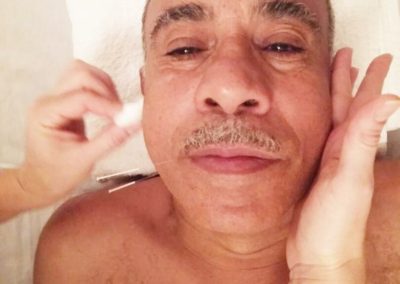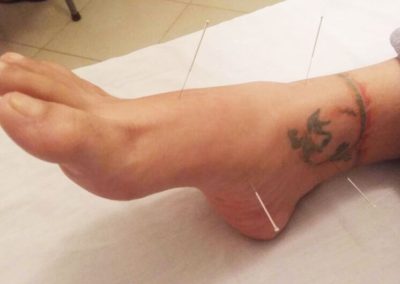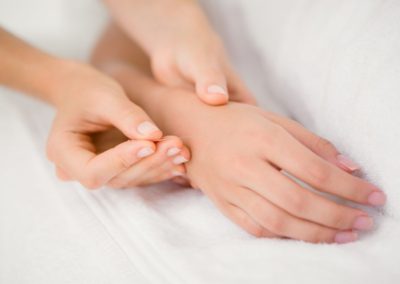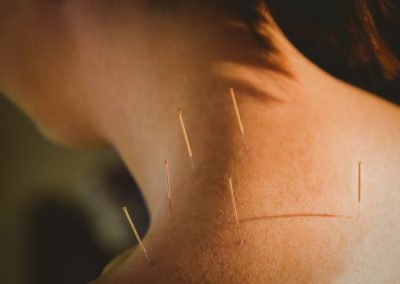MEDICAL TREATMENTS
ACUPUNCTURE (Session 60 Minutes)
This therapy is the Key component of traditional Chinese medicine.
Inserting thin needles in specific acupuncture points throughout the body restore the balance of the body’s life energy, stimulate healing, and promote relaxation.
Acupuncture is used to treat many different diseases, disorders and pain conditions. Common ailments that respond well to acupuncture include: tendinitis, arthritis, headaches, chronic pain, chronic fatigue syndrome, respiratory disorders, skin problems and digestive disorders.
If you’re new to holistic healing as a type of treatment, acupuncture can seem a bit terrifying. How could pressing needles into your skin possibly make you feel better? Doesn’t that hurt?
Well, no, it’s definitely not the overtly painful procedure you may be imagining, and considering that it’s been studied and practiced for over
This treatment consists of:
– Clinical History (1st Session)
– Acupuncture Session
After making the complete diagnosis and treatment, the patient is given the protocol to follow as the case may be.
– Continuous treatment. Most times, at least 6 therapies should be performed.
– Monitoring and control of treatment with weekly and gradually monthly therapies according to the patient’s evolution.
*Trusted Source: Healthline.com website
What is acupuncture?
Acupuncture is an ancient Chinese medicine-based approach to treating a variety of conditions by triggering specific points on the skin with needles. Acupuncture is a minimally invasive method to stimulate nerve-rich areas of the skin surface in order to influence tissues, gland, organs, and various functions of the body.”
Each acupuncture needle produces a tiny injury at the insertion site, and although it’s slight enough to cause little to no discomfort, it’s enough of a signal to let the body know it needs to respond. This response involves stimulation of the immune system, promoting circulation to the area, wound healing, and pain modulation. Contemporary research on acupuncture relies mainly on this theory.
What’s the philosophy behind acupuncture?
The Chinese philosophy behind acupuncture is a bit more complicated, as the ancient practice isn’t traditionally based in science and medicine. They believed that the human body was filled with and animated by an invisible life-giving force which they called ‘qi’ (pronounced ‘chee’) and when the qi was flowing well and going to all the right places, then a person would experience good mental and physical health. When the qi was flowing incorrectly (blocked or deficient) that would result in illness.
The concept of qi isn’t too out there — think of it as your body’s natural inner workings. Sometimes you’re more prone to illness when feeling stressed or anxious. When you’re relaxed and healthy, your body physically reflects that too. After all, your mood, mental health, and general well-being do affect your physical health. Thus, acupuncture aims to assist people in achieving balance, or qi, and, as a result, provide relief for many ailments.
What does acupuncture do?
You may be interested in acupuncture for a variety of reasons — for example, I sought treatment for my chronic headaches and sinus pressure — as there are countless conditions and symptoms that acupuncture has been said to help with. Here are just some of the many claims:
- allergies
anxiety and depression (Trusted Source) osteoarthritis (Trusted Source) chronic pain (Trusted Source) , often in the neck, back, knees, and head- hypertension
insomnia (Trusted Source) menstrual cramps and PMS (Trusted Source) migraines (Trusted Source) - morning sickness
- sprains
- strokes
Some studies even suggest that acupuncture can help with cancer treatment and multiple sclerosis, however research for these conditions is limited and requires larger studies to confirm the benefits.




